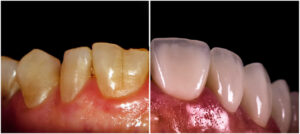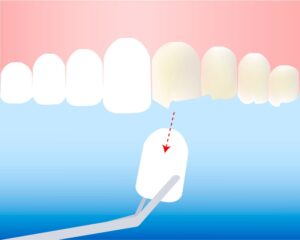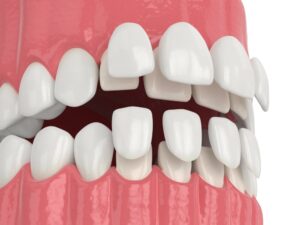The cost of veneers in Missouri can vary depending on several factors such as the number of veneers needed, the type of veneers selected, and the expertise of the dentist. On average, the cost of veneers in Missouri ranges from $800 to $2,500 per tooth.
It’s important to note that this is an estimate and the actual cost may be higher or lower depending on individual circumstances. It’s recommended to consult with a skilled and experienced dentist for a personalized cost estimate based on your unique dental health and cosmetic goals.
Ready for a stunning smile transformation? Discover unbeatable veneer specials in Miami and take the first step towards your dream smile. Don’t wait, schedule now and seize this limited-time opportunity!
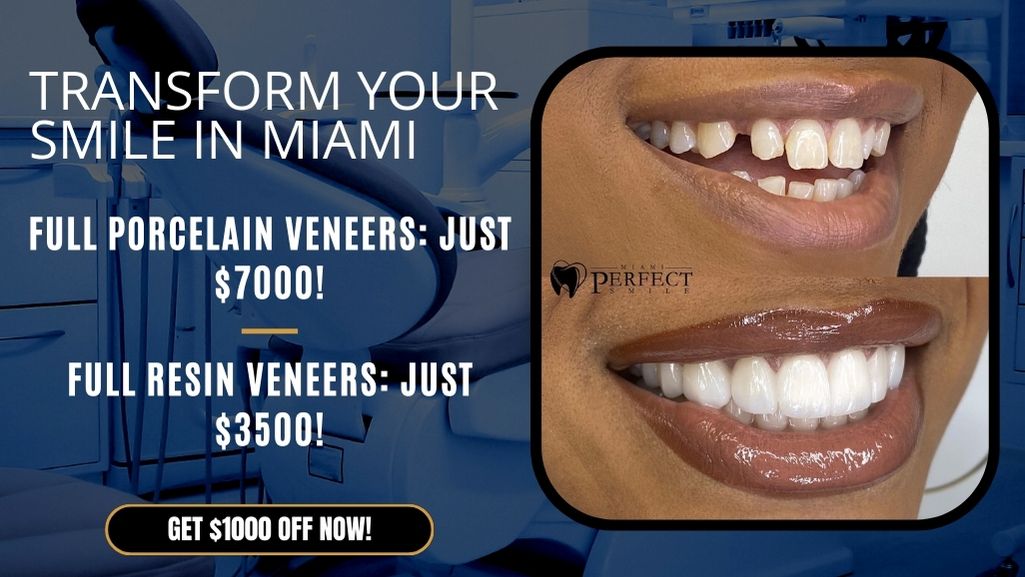
Top Dentists for Veneers in Missouri
Choosing the right dentist for veneers is an important decision that can impact the outcome of the procedure. Here are some top dentists for veneers in Missouri:
| Dentist | Location | Specialization | Notable Accomplishments |
|---|---|---|---|
| Dr. Michael J. Lewis | Jefferson City | Cosmetic Dentistry | Over 30 years of experience; known for natural-looking results |
| Dr. Mike Maroon | Kansas City | Cosmetic Dentistry | Specializes in veneers and other cosmetic dental treatments; uses advanced technology and techniques |
| Dr. Ryan Rutar | Chesterfield | Cosmetic Dentistry | Personalized approach to treatment; extensive experience in veneers and other cosmetic dental procedures |
| Dr. Dan Kessler | St. Louis | Cosmetic Dentistry | Attention to detail; ability to create beautiful, natural-looking results |
| Dr. Dustin Goetz | Columbia | Cosmetic Dentistry | Specializes in veneers and other cosmetic dental treatments; uses advanced technology and techniques |
You may be interested: Discover the cost of veneers in Kentucky (KY)
Factors Affecting Veneer Pricing
The cost of veneers can vary depending on several factors, including:
- Type of Veneer: There are several types of veneers available, including traditional porcelain veneers, composite veneers, and minimal-prep veneers. The cost can vary depending on the type of veneer selected.
- Number of Veneers: The cost of veneers can also depend on the number of teeth that need to be treated. The more veneers required, the higher the overall cost will be.
- Location: The cost of veneers can vary depending on the location of the dental practice. Veneers may be more expensive in urban areas compared to rural areas.
- Expertise of the Dentist: The skill and experience of the dentist can impact the cost of veneers. Highly experienced dentists may charge more for their services.
- Materials Used: The cost of veneers can vary depending on the materials used. High-quality materials may be more expensive than lower-quality materials.
- Lab Fees: In some cases, veneers may need to be fabricated in a dental laboratory. Lab fees can add to the overall cost of veneers.
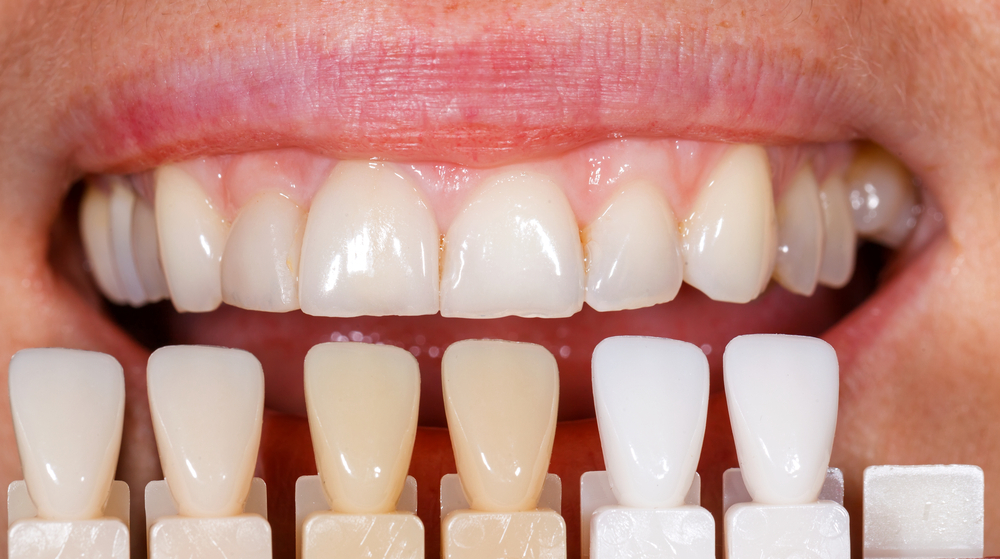
It’s important to note that the cost of veneers can vary significantly depending on these factors and other individual circumstances. Consulting with a skilled and experienced dentist can help patients determine the best course of action based on their unique dental health and cosmetic goals.
Comparing Veneer Costs in Missouri and Surrounding States
The cost of veneers can vary depending on several factors, including the type of veneer selected, the number of veneers needed, and the location of the dental practice. Here’s a comparison of veneer costs in Missouri and some surrounding states:
| State | Range of Cost per Tooth |
|---|---|
| Missouri | $800 – $2,500 |
| Kansas | $800 – $2,500 |
| Illinois | $900 – $2,500 |
| Iowa | $800 – $2,500 |
| Nebraska | $800 – $2,500 |
It’s important to note that these are estimates and the actual cost may be higher or lower depending on individual circumstances. Additionally, the cost of veneers can vary significantly depending on the expertise of the dentist, the materials used, and other factors.
Why Choose Veneers?
Veneers are a popular cosmetic dental treatment that can provide patients with a beautiful, natural-looking smile. Here are some reasons why people may choose veneers:
- Correct Cosmetic Issues: Veneers can be used to correct a variety of cosmetic issues such as discoloration, chips, cracks, and gaps in the teeth. They can also be used to improve the shape and size of the teeth, providing a more balanced and proportionate smile.
- Minimally Invasive: Veneers are a minimally invasive treatment that requires only a small amount of enamel removal. This means that patients can enjoy a more comfortable and less invasive procedure compared to other cosmetic treatments such as dental crowns.
- Long-Lasting: Veneers are durable and can last for many years with proper care and maintenance. This means that patients can enjoy a beautiful smile for a long time after the procedure.
- Natural-Looking Results: Veneers are designed to look and feel like natural teeth, providing patients with a beautiful, natural-looking smile.
- Versatile: Veneers can be used to treat a variety of cosmetic issues, and can be customized to meet each patient’s unique dental health and cosmetic goals.
Overall, veneers are a popular cosmetic dental treatment that can provide patients with a variety of benefits, including improved appearance, comfort, and long-lasting results. Consulting with a skilled and experienced dentist can help patients determine if veneers are the right choice for their individual needs and goals.
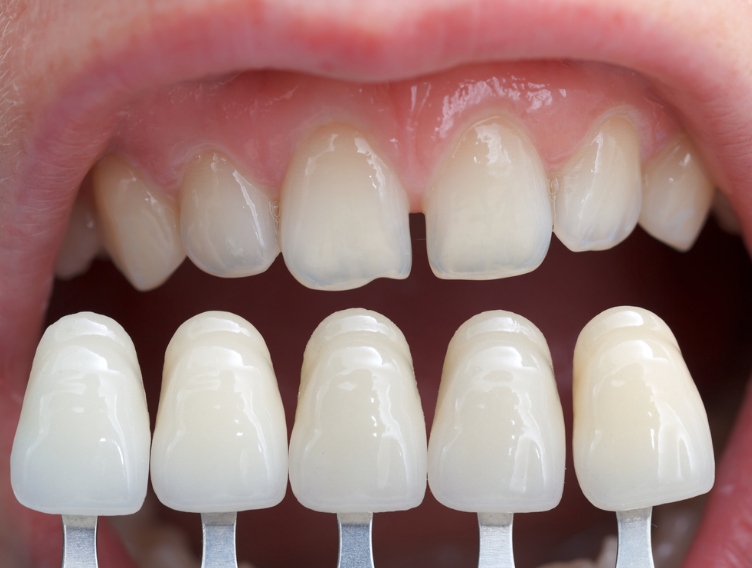
Types of Veneers Available
There are several types of veneers available, each with its own unique benefits and considerations. Here are some of the most common types of veneers:
- Traditional Porcelain Veneers: These are made from high-quality porcelain and are designed to look and feel like natural teeth. They require a small amount of enamel removal and are custom-made to fit each patient’s unique dental health and cosmetic goals.
- Composite Veneers: These are made from composite resin material and can be applied directly to the teeth without the need for enamel removal. They are typically less expensive than porcelain veneers but may not be as durable or long-lasting.
- Minimal-Prep Veneers: These are a type of porcelain veneer that requires less enamel removal compared to traditional veneers. They can provide a more comfortable and less invasive treatment option for patients.
- Lumineers: These are a type of minimal-prep veneer that are even thinner than traditional veneers. They require no enamel removal and can be placed directly over the teeth, providing a more comfortable and minimally invasive treatment option.
- No-Prep Veneers: These are a type of veneer that requires no enamel removal and can be placed directly over the teeth. They are typically made from ultra-thin porcelain and can provide a more comfortable and minimally invasive treatment option for patients.
It’s important to note that each type of veneer has its own unique benefits and considerations, and consulting with a skilled and experienced dentist can help patients determine the best type of veneer for their individual needs and goals
References:
- Krikheli, N. I., & Ivankova, M. V. (2018). Esthetics in Dentistry. Wiley Blackwell



